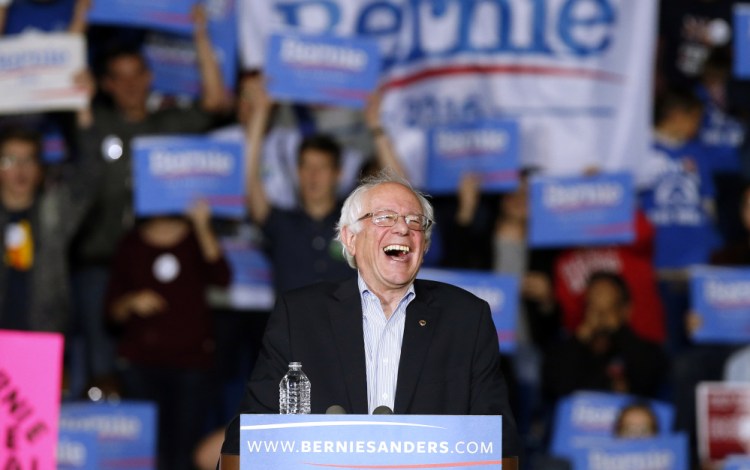For a few months now, we’ve all been fascinated by the loud indecency of Donald Trump. He’s lashed out at immigrants, Washington and virtually any idea that isn’t his own. His stream of insults, delivered with machine-gun speed in all directions, has seemed better suited to a Las Vegas comedy routine than a presidential campaign.
Many Democrats have worried about Trump, for reasons that escape me. His campaign is following a familiar arc. Outrageous words generate media coverage. The response gets more coverage. That creates public attention, which is soon picked up by pollsters. Pundits declare the new front-runner.
All of it works for about as long as the popcorn is fresh.
As many forgotten one-hit-wonder candidates will tell you, it is a process that cannot sustain itself. Yesterday’s insults become boring. Clowns need new makeup. What is outrageous the first time is less so the second. And the candidate must adapt or fall, either by raising the ante on themselves with even more outrageous words and deeds, or by morphing into something that at least looks more like a serious candidate.
Either response only encourages the wandering eye of the press to look elsewhere.
This is exactly what is happening now with Trump. The hordes of media are shrinking. His act is moving from arenas to concert halls, on the way to nightclubs. After next year’s election, Trump won’t be the president. He won’t even be the Republican nominee. That’s show biz, as they say.
Trump is a reflection of something we’ve known about the national Republican Party for a while, which is that it’s been overtaken by its far-right-wing faction. Tea party folks are mad as hell at government and immigrants, nostalgic for the 1950s and convinced of elaborate conspiracies in everything from military exercises to climate change. But they also lovingly support the rich and economically powerful.
What might be the lasting story of the presidential campaign is not Donald Trump but Bernie Sanders. Not that Sanders will be the president either, but his campaign has helped to rapidly expand a populist alternative to the tea party, on the left. And that has the potential to reshape both the Democratic Party and the country.
It all started with Occupy Wall Street’s attack on the top tier of Americans taking all the cookies in the jar. Sen. Elizabeth Warren advanced those arguments further. Now Sanders is giving that movement a vehicle to expand and grow.
You can see the effects of the Sanders surge in Hillary Clinton’s words at the Tuesday Democratic debate. When Sanders pointed to the shift in wealth and the role of billionaires in America’s decline, Clinton seemed eager to add a “me, too.” We need to “save capitalism from itself,” she said, echoing Franklin D. Roosevelt.
Income and wealth inequality in America is a ticking time bomb created by the stunning shift of the country’s resources, since the 1960s, from the middle class to the top 1 percent. It has brought us a kind of economic division that the country hasn’t seen since the Great Depression.
Today, 16,000 Americans own as much as the bottom two-thirds of America. By next year, analysts tell us, the top 1 percent may control more wealth than all of the rest of us. Call that the new aristocracy or modern capitalism, but it is a destabilizing and unsustainable concentration of wealth and power in any democracy.
Not surprisingly, the American middle class is frustrated and angry. The Republican tea party has brilliantly stoked that anger, blaming it all on government, liberals, welfare recipients and brown-skinned outsiders.
Democrats have responded by defending those groups, but without offering an alternative explanation for the decline of the middle class. Now the Sanders progressives are tapping into that anger and directing it at the top 1 percent of Americans, who have been slowly acquiring a controlling interest in America.
In doing that, ironically, they’re creating a movement that is much more aligned with the 1776 tea party than the Republican version. During the American Revolution, conservatives weren’t the agents of change, as the tea party fairy tale now suggests. They were the defenders of the King and aristocratic privilege, and the enemies of the Revolution.
Whether the Bernie Sanders boom becomes a lasting influence in the American political debate remains to be seen, but one thing seems clear: There is a battle for the hearts and minds of Americans underway today over who is responsible for the collapse of the middle class. The tea party has had that field largely to itself for a decade. That is now changing.
Alan Caron is the owner of Caron Communications, a strategic consulting and communications firm based in Freeport. He can be contacted at:
alancaroninmaine@gmail.com
Send questions/comments to the editors.


